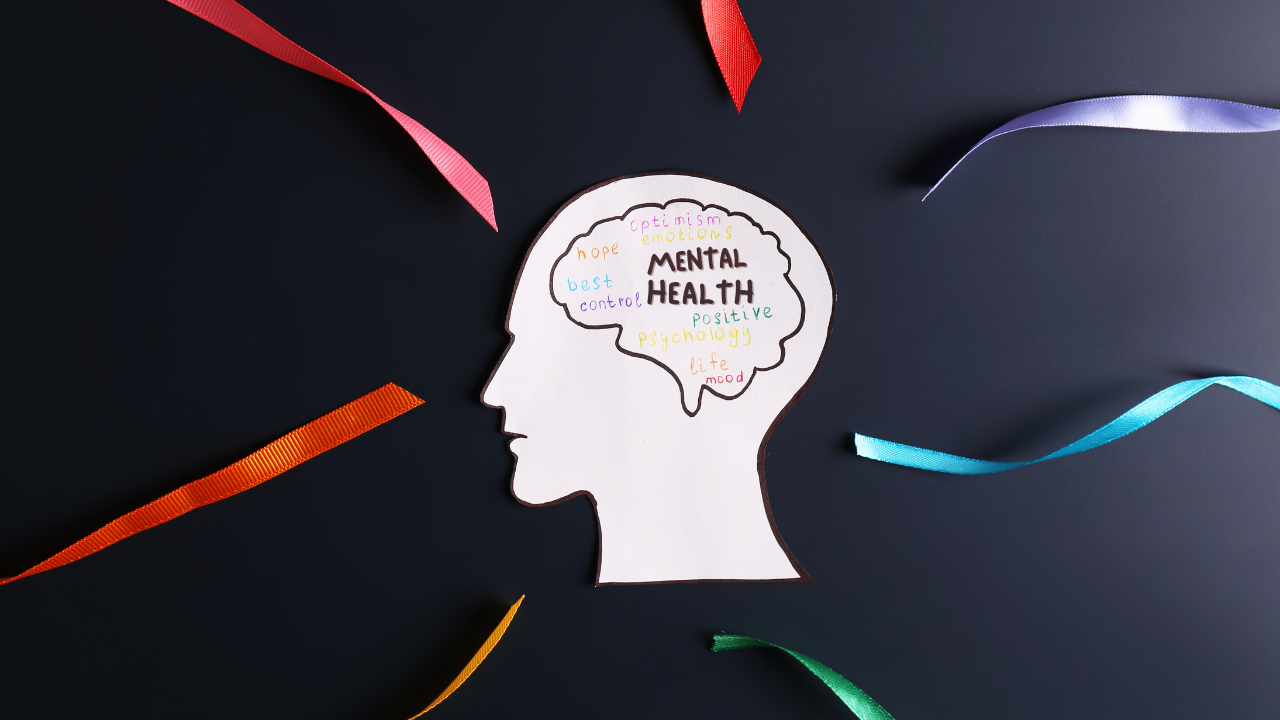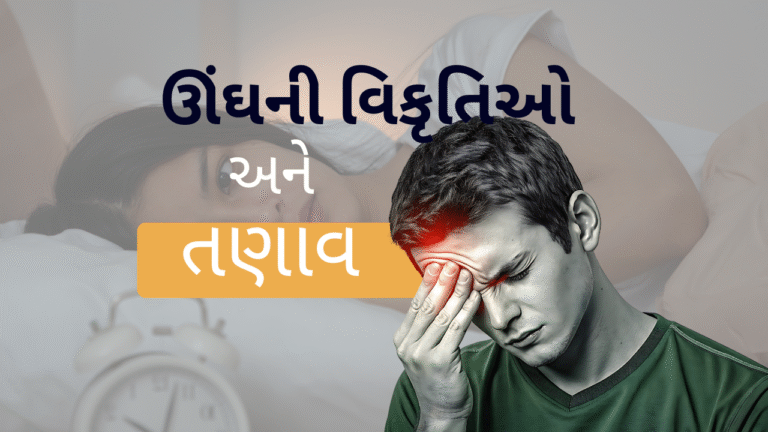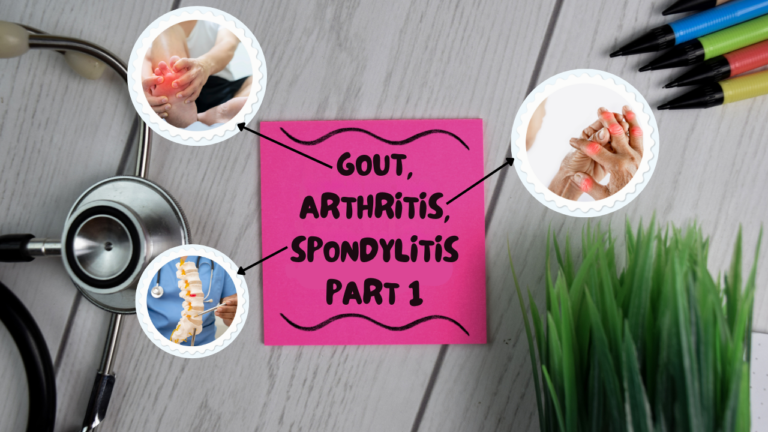Mental Health
Mental Health: A Comprehensive Overview

Mental health is an incredibly vast and significant topic that impacts all aspects of human life, just as much as physical health does. Today, we aim to delve into this subject, exploring various facets and outlining key components of mental health, its definition, and its importance.
Introduction and Definition of Mental Health:
Mental health is a crucial aspect of overall health. The World Health Organization (WHO) defines health as a “state of complete physical, mental, and social well-being,” emphasizing that mental health is equally important as physical health. Unfortunately, most people tend to overlook mental health, giving more importance to physical health issues.
Health is not merely the absence of disease; it includes the complete well-being of a person—physically, mentally, and socially. Often, people assume that if someone is not diagnosed with a mental disorder, they are mentally healthy. However, mental health is much more than just the absence of mental disorders.
Definition of Mental Health:
The World Health Organization (WHO) defines mental health as a state of well-being in which an individual realizes their own abilities, can cope with the normal stresses of life, work productively, and contribute to their community. Mental health is not just the absence of mental illness but encompasses a broader scope, including emotional and psychological stability.
Mental health includes handling day-to-day stresses, such as:
- Meeting deadlines at work
- Coping with traffic delays
- Managing daily pressures without feeling overwhelmed
A mentally healthy person can navigate these normal stresses without feeling burdened. They remain productive and are able to contribute positively to society.
Key Organizations’ Definitions
- WHO Definition: Mental health is a state of well-being where individuals realize their abilities, cope with normal life stresses, work productively, and contribute to their community.
- National Institute of Mental Health (NIMH): Mental health includes our emotional, psychological, and social well-being. It affects how we think, feel, and act, determining how we handle stress, relate to others, and make decisions.
Substance Abuse and Mental Health Services Administration (SAMHSA): Mental health is a state of well-being where individuals can cope with life’s stresses, work productively, and make meaningful contributions to their communities.
Conscious and Subconscious Mind:
Understanding mental health requires insight into both the conscious and subconscious mind. The conscious mind handles active thoughts, decision-making, and awareness, while the subconscious mind holds memories, experiences, and ingrained patterns that influence behavior and emotions.
Poor Mental Health: Causes and Symptoms:
Poor mental health can arise from various factors, including genetics, stress, trauma, or lifestyle choices. Common symptoms of poor mental health may include:
- Anxiety
- Depression
- Sleep disorders
- Mood swings
- Difficulty concentrating
- Social withdrawal
Identifying the root causes and early symptoms is crucial in addressing mental health issues effectively.
Different Types of Mental Disorders:
Mental health disorders can vary widely in their presentation and impact. Some common types include:
- Anxiety Disorders: Characterized by excessive fear or worry.
- Mood Disorders: Includes conditions like depression and bipolar disorder.
- Psychotic Disorders: Involves distorted thinking and awareness, like schizophrenia.
- Eating Disorders: Abnormal eating habits and body image issues.
- Personality Disorders: Enduring patterns of behavior that deviate from cultural expectations.
Difference Between Psychiatrists and Psychologists:
Though often used interchangeably, psychiatrists and psychologists have distinct roles.
- Psychiatrists are medical doctors who can prescribe medication and treat severe mental disorders.
- Psychologists focus on therapy and counseling, helping individuals cope with mental health issues through behavioral interventions and psychotherapy.
Case Studies:
Exploring real-life examples through case studies can provide a deeper understanding of how mental health disorders manifest and the approaches used in treatment. Case studies also highlight the importance of personalized care and early intervention.
Characteristics of a Mentally Healthy Person

Understanding what it means to be mentally healthy is crucial:
- Positive Outlook: A mentally healthy individual has a positive attitude towards others and themselves.
- Comfortable with Themselves: They feel comfortable with who they are and are generally satisfied with their personality and nature.
- Balanced Self-Perception: They neither overestimate nor underestimate their abilities, feeling secure and adequate in their sense of self.
Mental Health in India:
Mental health is a significant concern worldwide, with estimates showing that around 20% of global mental health cases originate from India. There is also a significant treatment gap in India, with approximately 80% of those with mental disorders not receiving the necessary care.
Naturopathic Management of Mental Health:
Naturopathy offers holistic approaches to managing mental health, focusing on diet, lifestyle changes, and natural remedies. Some common naturopathic methods include:
- Herbal Remedies: Using plants like St. John’s Wort for depression or valerian for anxiety.
- Nutritional Support: Ensuring a balanced diet to support brain health, such as foods rich in omega-3 fatty acids.
- Mind-Body Techniques: Practices like yoga, meditation, and mindfulness to enhance mental well-being.
Mental health is a basic human right, just like physical health. Everyone has the right to receive proper treatment and care if their mental health is compromised. Mental health disorders should never be underestimated or trivialized, and seeking professional help is always the right approach.
Understanding and promoting mental health is crucial not only for individuals but also for communities and society at large. By recognizing the importance of mental well-being, we can foster a healthier, more supportive world.
Conscious vs. Subconscious Mind

To better understand mental health, it’s important to explore the concept of the conscious and subconscious mind.
Conscious Mind:
The conscious mind is responsible for logic and reasoning. It handles:
- Willpower
- Short-term memory
- Logical thinking
- Critical thinking
An example is solving a math problem like 2 + 2 = 4; the conscious mind uses logic to process this.
The conscious mind also acts as a gatekeeper, helping us decide whether to accept or reject new information based on our existing beliefs. If someone presents an idea that contradicts our established beliefs, the conscious mind evaluates and prepares us to accept or reject it.
Subconscious Mind:
The subconscious mind controls involuntary actions, such as:
- Habits
- Emotions
- Values
- Protective reactions
- Long-term memory
- Imagination and intuition
For example, driving a car after you’ve mastered the skill becomes a subconscious activity. Your subconscious mind also controls emotions, which is why you may sometimes feel anxious or down without wanting to experience those emotions. It works in the background, influencing how we react to situations, often without our conscious awareness.
Subconscious Influence on Emotions and Beliefs:
Our beliefs and memories are stored in the subconscious, meaning it holds much influence over how we feel and behave. For example, sometimes people feel afraid, anxious, or sad without understanding why. These emotions are often the result of subconscious beliefs or memories that affect our mental state.
Subconscious emotions can surface without logical explanation. To change these deeply ingrained beliefs, the conscious mind must engage in logical reasoning and deliberate effort.
Mental health encompasses much more than the absence of mental illness. It involves a balance of emotional, psychological, and social well-being, enabling individuals to manage stress, work productively, and contribute meaningfully to their communities. Understanding the interplay between the conscious and subconscious mind is key to managing mental health effectively. By recognizing the importance of mental well-being, we can create healthier individuals and communities.
Understanding the Conscious and Subconscious Mind: A Simple Exercise
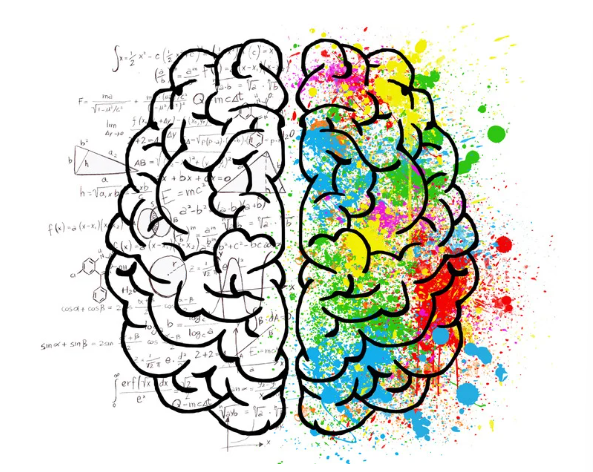
To better understand the difference between the conscious and subconscious mind, here’s a simple exercise you can try.
Control Your Breathing:
- Begin by consciously controlling your breath. Focus all your attention on holding your breath for as long as possible, around 30 or 40 seconds.
- Once you release your breath, you’ll naturally start breathing again without consciously thinking about it. This automatic response is the work of your subconscious mind.
- Takeaway: The exercise demonstrates how the subconscious mind operates without your conscious involvement, particularly in essential functions like breathing.
Causes of Mental Ill Health:
Several factors contribute to mental health issues, some of which are physical, psychological, or environmental. Below are the major causes:
1.Physical Conditions:
- Cerebral Arteriosclerosis: When there is a narrowing of the blood vessels in the brain, it leads to improper blood flow, causing symptoms related to poor mental health.
- Neoplasms: People with cancer often experience extreme fear, anxiety, and poor mental health, living in constant dread of whether tomorrow will be their last day.
- Metabolic Diseases: Conditions such as diabetes and obesity can lead to mental health problems due to the physical and emotional toll they take on a person.
- Neurological and Endocrine Disorders: Diseases like epilepsy, tuberculosis, and leprosy also contribute to poor mental health.
2.Heredity:
- Mental health issues can also be hereditary, just like physical diseases such as diabetes. However, advancements in epigenetics show that even if an individual has a genetic predisposition, they can avoid mental illness with a healthy lifestyle and early intervention.
3.Environmental Factors:
- Toxic Substances: Exposure to substances like carbon disulfide, mercury, manganese, lead, and tin can severely impact mental health.
- Drugs and Alcohol: The use of psychotropic drugs, such as barbiturates and alcohol, can initially make a person feel relaxed but eventually lead to deterioration of mental health as the body becomes dependent on these substances for feeling good.
4.Nutritional Deficiencies:
- Deficiencies in essential nutrients like thiamine, pyridoxine, and iodine can also lead to poor mental health.
5.Infectious Agents:
- Infectious diseases like measles and rubella during the prenatal, perinatal, and postnatal periods can adversely affect brain development and contribute to long-term mental health issues.
6.Traumatic Factors:
- Traumatic incidents, such as road or workplace accidents, or exposure to radiation during pregnancy, can impact mental health, especially during critical brain development periods.
Crucial Points in Human Life Affecting Mental Health:
1.Prenatal Period:
- Pregnancy can be a stressful period for many women, which can impact both the mother’s and baby’s mental health.
2.First Five Years of Life:
- The early developmental stages of a child are critical to mental health. A child’s behavior and mental state are shaped during this time.
3.Early Childhood:
- Growing up in broken homes or dysfunctional environments can lead to behavioral disorders in children.
4.School Age:
- The school environment, teacher behavior, and peer interactions play an essential role in shaping a child’s mental health. Negative experiences at school can lead to long-term mental health issues.
5.Adolescence:
- Adolescence is a tumultuous period, transitioning from childhood to adulthood. This phase is often stormy and can manifest as mental health problems, especially if the individual faces significant challenges or pressures.
6.Old Age:
- As people age, they may experience mental health challenges due to organic conditions of the brain, financial insecurity, lack of a home, or poor status, which can contribute to anxiety and depression.
Mental health can be affected by a variety of factors, ranging from physical illnesses and environmental influences to the experiences a person has throughout their life. Understanding these causes and the role of the subconscious mind in our daily actions can help in maintaining a healthier mental state.
Signs and Symptoms of Mental Health Disorders

Mental health disorders present a variety of signs and symptoms, which can vary in intensity. Here are the common indicators:
1.Feeling Sad or Down:
- Persistent sadness or a sense of hopelessness is a key symptom of many mental health issues.
2.Confused Thinking or Reduced Ability to Concentrate:
- Struggling to focus on tasks or thinking clearly can point towards mental health difficulties.
3.Excessive Fears or Worries:
- Overwhelming fear, worry, or extreme feelings of guilt can affect daily functioning. This can also result in extreme mood changes, leading to emotional highs and lows.
4.Withdrawal from Friends and Activities:
- A person may avoid social interactions and no longer engage in activities they used to enjoy.
5.Significant Tiredness, Low Energy, or Problems Sleeping:
- Chronic fatigue or disruptions in sleep patterns often accompany mental health disorders.
6.Detachment from Reality (Delusions, Paranoia, or Hallucinations):
- People with severe mental illnesses may experience delusions, paranoia, or hallucinations, leading to a distorted perception of reality.
7.Inability to Cope with Daily Problems or Stress:
- Simple daily tasks may become overwhelming, contributing to poor mental health.
8.Alcohol or Drug Abuse:
- Substance abuse is often a coping mechanism for mental health issues, but it can further exacerbate the condition.
9.Major Changes in Eating Habits:
- A loss of appetite or drastic changes in eating patterns are common signs of mental health problems.
10.Sex Drive Changes:
- A noticeable increase or decrease in sex drive may be linked to emotional or mental health struggles.
11.Excessive Anger, Hostility, or Violence:
- Outbursts of anger, irritability, and aggression are often seen in those battling mental health disorders.
12.Suicidal Thinking:
- Thoughts of self-harm or suicide are critical signs of serious mental health issues and require immediate intervention.
Mental Health Disorders and Anxiety Disorders

Several mental health disorders are directly related to anxiety. Below are the most common types:
1.Generalized Anxiety Disorder (GAD):
- Symptoms: Individuals with GAD often worry excessively about various aspects of life. They may have anxious thoughts that seem to float from one issue to another, without a clear trigger.
- Emotional-Cognitive Symptoms: Constant worry, feelings of dread, and free-floating anxiety.
- Physical Symptoms: Trembling, sweating, sleep disturbances, and restlessness.
2.Panic Disorder:
- Symptoms: Panic attacks, often accompanied by the feeling of “I’m dying.” These attacks can occur without any specific trigger (free-floating) and interfere with a person’s ability to focus.
- Physical Symptoms: Rapid heartbeat, trembling, sweating, and difficulty breathing.
3.Phobias:
- Symptoms: Phobias involve an irrational and uncontrollable fear of specific objects or situations. Even the thought or sight of the phobic object can cause extreme distress.
- Types of Phobias:
- Specific Phobias: Fear of objects like rain, mud, or heights.
- Agoraphobia: Fear of being in situations where escape is difficult, often leading to avoiding crowded or open spaces.
- Social Phobia: Fear of being judged or watched, particularly in public settings, such as public speaking or performing.
4.Obsessive-Compulsive Disorder (OCD):
- Symptoms: OCD involves unwanted, repetitive thoughts (obsessions) and behaviors (compulsions).
- Obsessions: Persistent, intrusive thoughts about things like germs, order, or catastrophes.
- Compulsions: Repeatedly engaging in behaviors like washing hands, checking locks, or organizing objects in a specific way, even when it seems irrational.
- Distress: The frustration of being unable to control these behaviors.
- Dysfunction: Spending excessive time and energy on these compulsions, disrupting daily life.
- Common OCD Behaviors:
- Obsessions:
- Concern with dirt, germs, or toxins: 40%
- Fear of something terrible happening (e.g., fire, illness): 24%
- Preoccupation with symmetry or exactness: 17%
- Compulsions:
- Excessive hand washing, grooming: 85%
- Repeating rituals, such as going in and out of a door: 51%
- Checking things repeatedly (doors, appliances): 46%
- Obsessions:
Mental health disorders manifest in various ways, impacting both emotional and physical well-being. Recognizing the signs and symptoms, from anxiety and phobias to more severe issues like OCD and panic disorders, is the first step toward managing mental health effectively. Identifying these behaviors and seeking timely help can greatly improve the quality of life for those affected.
Post-Traumatic Stress Disorder (PTSD)
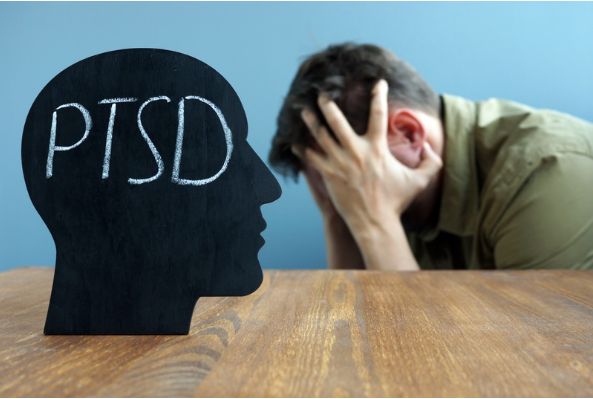
PTSD is a common mental health condition that develops after a traumatic experience, such as witnessing a severe accident or a violent event. About 10-35% of people who experience trauma develop PTSD, which can last from at least four weeks to a lifetime.
The most common symptoms include:
1.Repeated Intrusive Recall of Memories:
- The individual experiences recurrent, distressing memories of the traumatic event.
2.Nightmares and Re-Experiencing:
- Reliving the trauma through nightmares or flashbacks.
3.Social Withdrawal or Phobic Avoidance:
- The person may avoid social interactions or places that remind them of the trauma.
4.Jumpy Anxiety or Hypervigilance:
- Increased anxiety and a heightened sense of awareness, always being on edge.
5.Insomnia or Sleep Problems:
- Difficulty falling asleep or staying asleep due to distressing thoughts.
Who is More Likely to Develop PTSD?
- Those with Less Control in the Situation: People with lower mental resilience are more susceptible.
- Those Traumatized More Frequently: Experiencing multiple traumatic events can increase the risk of PTSD.
- People with Brain Differences: Some individuals may have pre-existing brain conditions that make them more vulnerable.
- Those Who Get Re-Traumatized: Experiencing another traumatic event can worsen PTSD symptoms.
Resilience and Post-Traumatic Growth:
While PTSD can be debilitating, many people show resilience after trauma. Recovery can include:
- Lingering stress, but not overwhelming.
- Discovering personal strengths.
- Building connections with others.
- Finding hope and viewing the trauma as a challenge to overcome.
- Seeing oneself as a survivor.
Bipolar Disorder:
Bipolar disorder, formerly known as manic-depressive disorder, involves extreme mood swings between two polar opposite states: depression and mania.
Depression Symptoms:
- Depressed Mood: Feeling stuck in a state of sadness.
- Exaggerated Pessimism: Always expecting the worst.
- Social Withdrawal: Avoiding social interactions.
- Lack of Pleasure: Finding no joy in things that once brought happiness.
- Inactivity and Lack of Initiative: Feeling unmotivated to take action.
- Difficulty Focusing: Trouble concentrating.
- Fatigue: Constant tiredness and excessive need for sleep.
Mania Symptoms:
- Euphoric Mood: Feeling overly excited or “giddy.”
- Irritability: Becoming easily irritated or agitated.
- Exaggerated Optimism: An unrealistic sense of positivity.
- Hyperactivity: Increased physical and mental activity.
- Impulsivity: Engaging in risky behaviors without considering consequences.
- Racing Thoughts: Rapid thinking that leads to difficulty focusing.
- Little Desire for Sleep: Feeling energized with little need for rest.
Schizophrenia:
Schizophrenia is a severe mental disorder where the mind becomes detached from reality. It involves a split between one’s thoughts and the outside world, often resulting in hallucinations and delusions.
Schizophrenia Symptoms:
- Disorganized and Delusional Thinking: Thoughts that are disconnected from reality, leading to bizarre or irrational beliefs.
- Disturbed Perceptions: Experiencing hallucinations, such as hearing voices or seeing things that aren’t there.
- Inappropriate Emotions and Actions: Emotional responses that don’t fit the situation.
Positive Symptoms of Schizophrenia:
These are the presence of abnormal behaviors:
- Delusions: Strong, illogical beliefs, often involving persecution.
- Hallucinations: Seeing or hearing things that aren’t there.
- Disorganized Thinking: Difficulty forming coherent thoughts.
Negative Symptoms of Schizophrenia:
These are the absence of normal behaviors:
- Flat Affect: Lack of emotional expression.
- Social Withdrawal: Avoiding interactions with others.
- Avolition: Reduced motivation or ability to initiate tasks.
Difference Between Psychiatrists and Psychologists:
- Psychiatrists:
- Medical doctors with a specialization in psychiatry.
- They assess both mental and physical aspects of psychological disorders.
- Can prescribe medication and often work in hospitals.
- Receive higher compensation due to their medical background.
- Psychologists:
- Healthcare professionals with advanced degrees in psychology (PhD or PsyD).
- Focus on providing psychotherapy and psychological testing.
- Cannot prescribe medication.
- May work in various settings, including private practice and counseling centers.
Case Study: Generalized Anxiety Disorder (GAD):
A 50-year-old man, Mr. RP, was admitted to a psychiatric hospital with generalized anxiety disorder (GAD). His clinical presentation included:
- Restlessness: Constantly moving and unable to sit still.
- Fidgeting: Rearranging personal items repeatedly.
- Physical Symptoms: Complained of dizziness, upset stomach, insomnia, and frequent urination.
- Easily Distracted: Seemed agitated by people entering the room.
- Impatience: Frustration with medical staff during routine tasks.
- Cold, Clammy Hands: Indicating heightened anxiety.
- Elevated Pulse: A heart rate of 120 beats per minute.
These symptoms are typical of someone experiencing GAD, a condition marked by persistent and excessive worry, often accompanied by physical signs of distress.
Case of Antisocial Personality Disorder:
A 19-year-old woman, a college student living in a suburban area, came to the hospital with complaints of anxiety and difficulty sleeping. She confessed that she often feels the urge to hurt and persecute others. Despite her attempts to harm people, she doesn’t get caught, claiming these actions were done “accidentally.” From childhood, she displayed cruelty towards animals without any feelings of guilt or remorse. Recently, she expressed that her desire to harm others has intensified.
This behavior is indicative of Antisocial Personality Disorder (ASPD), a condition marked by a disregard for the rights of others, lack of empathy, and chronic patterns of manipulation or harmful actions.
Naturopathic Approach to Mental Health Disorders

The role of naturopathy in addressing mental health issues is crucial, offering prevention and therapeutic management through natural and holistic means. Here’s how naturopathy can help in cases of personality disorders and depression:
Prevention:
- Naturopathic Lifestyle: Adopting a natural and balanced lifestyle is essential in influencing positive behavior.
- Proper Food Intake: A diet rich in nutrients can positively affect mood and mental health.
- Yoga: Yoga practices, such as breathing exercises and relaxation techniques, help in reducing anxiety and promoting mental peace.
- Physical Activity: Regular exercise has a positive impact on mental well-being.
- Sleep and Rest: Adequate sleep is vital for maintaining mental health.
- Educational Programs: Teaching healthy habits from childhood, including stress management and parenting skills, can prevent the development of mental health disorders.
Therapeutic Prescription in Naturopathy:
For individuals suffering from antisocial tendencies or depression, the following naturopathic therapies can be beneficial:
- Hydrotherapy:
- Hip Bath: Helps in calming the nervous system.
- Spinal Bath: Provides relaxation and relief from stress.
- Immersion Bath: Soothes both the mind and body.
- Cold Head Pack: Reduces anxiety and helps in controlling emotions.
- Foot Bath: Relieves tension and improves circulation.
- Underwater Massage: Enhances relaxation and mental clarity.
- Manipulative Therapy: Therapeutic massage can reduce stress, improve circulation, and promote overall mental well-being.
- Heliotherapy: Exposure to sunlight stimulates the production of serotonin, which can help in mood regulation and alleviate symptoms of depression.
- Yoga Therapy:
- Yoga Nidra: Deep relaxation and stress relief.
- Shavasana: Promotes mental calmness and relaxation.
- Pranayama: Breathing techniques that improve emotional stability.
- Relaxation Techniques: These can effectively reduce anxiety and impulsivity.
Management for Depression in Naturopathy:
Depression can be effectively managed through natural therapies that aim to restore balance in both the body and mind. Naturopathy offers a combination of physical therapies, yoga, and dietary interventions.
Hydrotherapy for Depression:
- Cold Applications: Using cold treatments, such as cold spinal sprays and cold chest packs, can reduce emotional agitation.
- Cold Underwater Massage: Relieves tension and improves mood.
- Cold Immersion Bath: Promotes calmness and alleviates depression.
- Cold Hip Bath: Helps in managing mental stress and anxiety.
- Cold Circular Jet: Stimulates the nervous system, promoting a sense of well-being.
Mud Therapy:
- Full Mud Bath: This therapy helps in grounding the body, improving energy flow, and balancing emotions.
Manipulative Therapy:
- Full Body Massage: Stimulates relaxation and improves mental clarity.
- Partial Massage: Massaging specific areas such as the feet and hands can also be beneficial.
- Aromatherapy: Adding essential oils during massage sessions can enhance the therapeutic benefits.
Heliotherapy:
- Regular exposure to sunlight can enhance mood and alleviate symptoms of depression.
Yoga Therapy for Depression:
- Tadasana: Improves posture and helps in relieving stress.
- Virabhadrasana: Builds strength and mental focus.
- Simhasana: Releases emotional tension.
- Dhanurasana: Opens up the chest and improves circulation.
- Bhramari Pranayama: Soothes the nervous system and promotes mental clarity.
- Vajrasana: Helps in digestion and mental calmness.
- Ardha Matsyendrasana: Improves spinal flexibility and mental focus.
- Marjariasana: Stimulates the nervous system and helps reduce stress.
- Nadi Shuddhi: A breathing technique that balances the body’s energy and calms the mind.
Dietary Supplements for Mental Health

A well-balanced diet plays a crucial role in supporting mental health. The following dietary components can help in treating depression and promoting emotional well-being:
Nutrients:
- Tryptophan: An amino acid that increases serotonin levels, which is essential for mood regulation.
- Vitamins:
- Vitamin B1, B2, B3, B6, B9, B12: These B vitamins support neuronal function, and their deficiency has been linked to depression.
- Folic Acid: Important for brain health and neurotransmitter production.
Food Sources:
- Pineapples: Rich in antioxidants and enzymes that promote mental well-being.
- Bananas: A good source of vitamin B6 and tryptophan.
- Garlic: Boosts immune function and mood.
- Carrots, Squash, Broccoli: Rich in vitamins that support brain health.
- Spinach and Green Beans: Loaded with B vitamins and folate.
- Potatoes, Cabbage, Beets, Onions, Tomatoes: These vegetables help in providing essential nutrients for brain function.
- Seeds and Nuts: Almonds, peanuts, and cashews provide healthy fats and proteins, which are vital for mental health.
- Whole-Grain Cereals: These are rich in B vitamins and support overall brain function.
- Curd: A probiotic-rich food that supports gut health, which in turn influences mental health.
- Fresh Fruits and Vegetables: These provide antioxidants and nutrients that promote mental clarity and emotional balance.
By incorporating naturopathic approaches such as hydrotherapy, yoga, dietary changes, and holistic lifestyle modifications, individuals suffering from mental health disorders can experience significant improvements in their well-being. Prevention through a healthy lifestyle and early interventions can also help in managing these conditions effectively.


